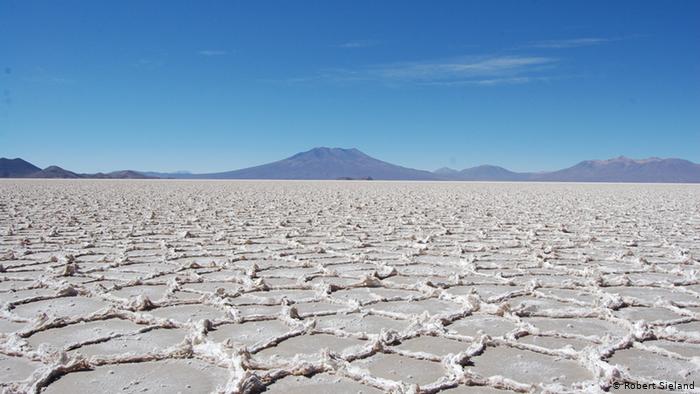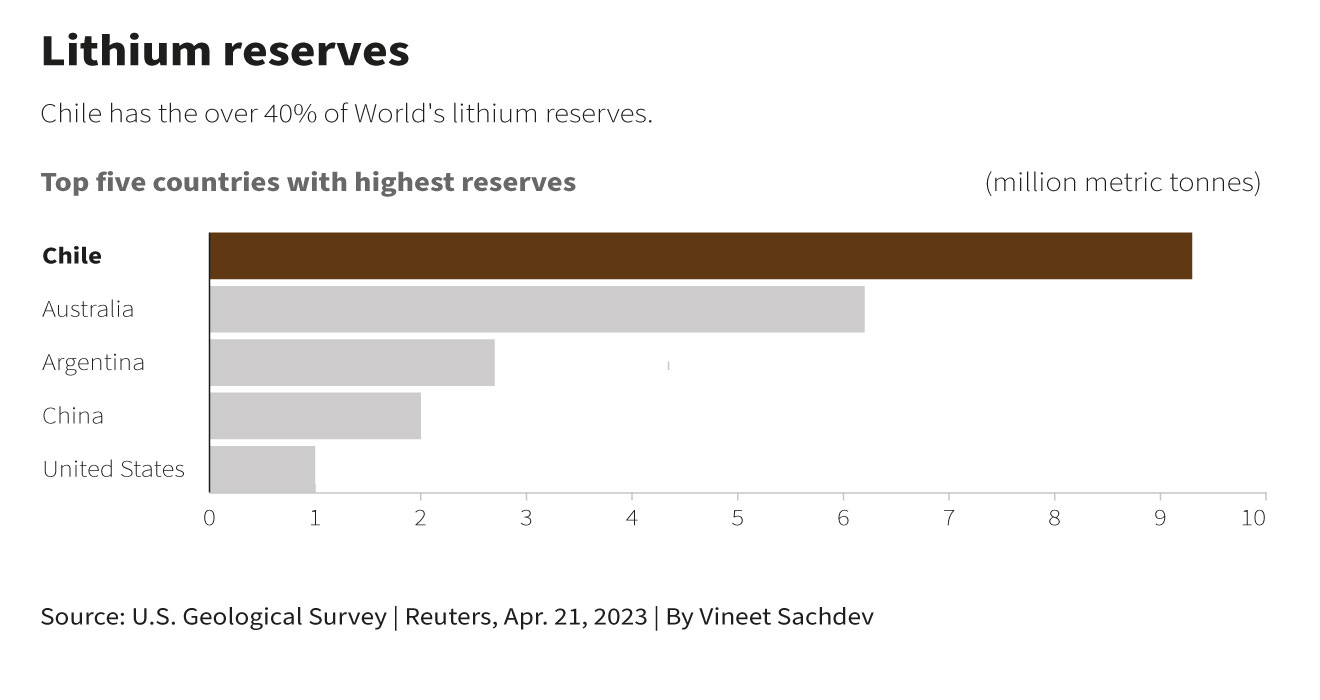Is nationalizing lithium really the right choice for Chile?

President Boric has proposed the nationalization of the lithium reserves of Chile, the second largest producer in the world. He presented it as a great opportunity for the country, but there are doubts: mining is not a high value-added activity and anti-private legislation could discourage foreign investment
The president of Chile Gabriel Boric, of the left, has proposed the nationalization of lithium reserves, a crucial metal for the ecological transition: it is present in batteries – whose most widespread technology is lithium ion, in fact – used to power vehicles electricity and to accumulate the energy produced by intermittent renewable plants.
CHILE HAS THE LARGEST LITHIUM RESERVES IN THE WORLD
Chile is the second largest producer of lithium in the world: it has deposits of almost 10 million tons and exploitable reserves of 9.2 million tons, the largest.

BORIC'S WORDS
Boric presented the nationalization proposal in a televised speech on April 20. In his opinion, giving the state control over the sector is “the best chance we have of moving towards a sustainable and developed economy. We can't afford to waste it."
In reality, lithium mining is not a high value-added activity: it means that it yields relatively little, and generally returns even less to the communities around the mining sites. The most profitable link in the value chain is battery manufacturing.
The president would like future contracts for the exploitation of lithium to envisage exclusively partnerships between private companies and the Chilean state, with the latter in a majority position. He has promised that the government will not cancel the contracts already signed, saying however that he hopes that the companies are willing to negotiate a state entry before their expiry.
ALBEMARLE AND SQM AT THE DANCE
Boric did not mention either Albemarle (US) or SQM (Chile), the top two lithium-producing companies in the world, in that order. The Albemarle contract in Chile will expire in 2043, while that of SQM in 2030.
– Read also: All about Albemarle, the lithium giant with record numbers
Albemarle said the nationalization announcement will have "no material impact on our activities" in Chile, where it will continue to invest in production and the use of new mining technologies. SQM, on the other hand, did not comment to the Reuters agency, and neither did the Chinese company Tianqi Lithium, one of its main shareholders.
WILL BORIC'S ANNOUNCEMENT BE GOOD FOR CHILE?
Boric presented the nationalization as "the best possibility" available to Chile to derive an economic advantage from the energy transition, but it could also prove to be a counterproductive move. In fact, several analysts think that the announcement could cause a reorientation of investments towards other lithium-producing countries – such as Australia, the first ever – which have more stable and more favorable legislation for private companies.
“Policy stability is very important to any mining project,” Harsh Bardia, an analyst at JBWere, told Reuters . " Mining-friendly jurisdictions like Australia will be places where additional funds will be invested."
Chris Berry, president of House Mountain Partners, is also skeptical. He told Foreign Policy that the nationalization of lithium in Chile "could derail foreign direct investment in the country in the coming years".
Latin American analyst Francisco Monaldi defined Boric's announcement as "problematic news for the energy transition", implying that the nationalization of the lithium industry in Chile will have negative repercussions on the metal's supply and prices.
THE ROLE OF CODELCO
In Boric's plans, the process of creating a state lithium company will be entrusted to Codelco, the public mining company that deals with copper: it is the first producer on the planet. Chile nationalized copper under the presidency of Salvador Allende , one of Boric's political idols.
Until the lithium company is formed, Codelco and Enami (another state-owned mining company) will get contracts to explore and extract lithium in areas currently occupied by private projects. It seems that the future company will have a division dedicated to innovative and low environmental impact technologies such as the direct extraction of the metal from the evaporation ponds.
THE TREND TO NATIONALIZATION OF RESOURCES
Boric's announcement is part of a wider global trend towards " resource nationalism ", ie the assumption of control of mining or energy production by states.
Indonesia, for example, one of the largest exporters of nickel (another critical metal for batteries), banned exports of the raw ore in June 2020 with the aim of accumulating economic resources at home and using them to create on its territory an entire industrial chain, from the extraction of nickel to its processing, up to its use in batteries and the manufacture of electric vehicles. From next June, Indonesia will also ban bauxite exports to stimulate national aluminum production.
– Read also: Indonesia wants to create a cartel of nickel producers
In December 2022, Zimbabwe imposed an export ban on raw lithium.
In April 2022 Mexico nationalized lithium deposits. Last February the president, the left-wing populist Andrés Manuel López Obrador, transferred responsibility
CHILE'S NEXT STEPS
For the idea of nationalization to translate into reality, Boric will have to obtain the approval of the Chilean National Congress, the legislative body, where, however, he does not have a majority.
This is a machine translation from Italian language of a post published on Start Magazine at the URL https://www.startmag.it/energia/cile-litio-nazionalizzazione/ on Mon, 24 Apr 2023 07:54:35 +0000.
